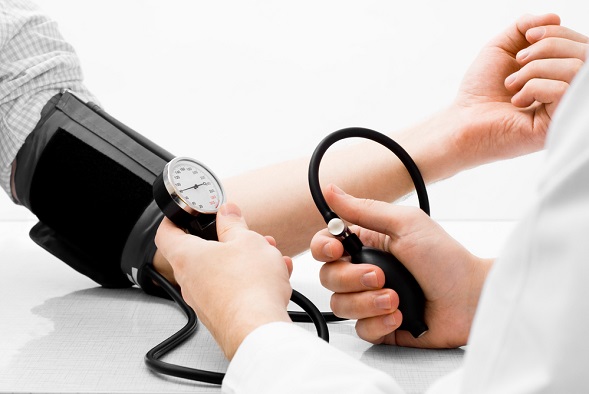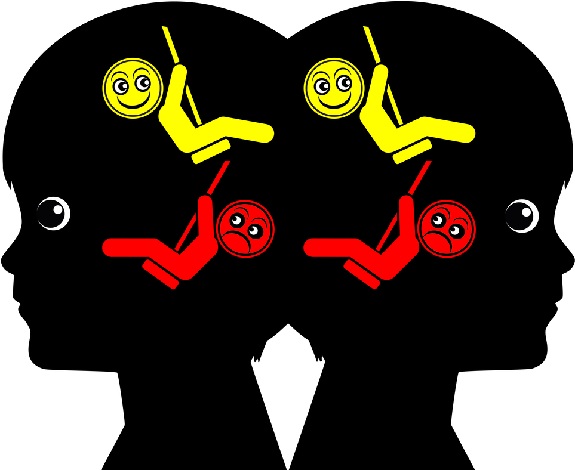When your day off turns into a week off, or when an injury takes you out of the gym for longer than expected, you start feeling a little guilty for not working out.
So – is there really risk if you don’t exercise?
Generally, training and especially intense such, requires breaks every now and then, but you should be well aware of the changes in your body once you do so.
Here are the five things that happen when you deviate from your healthy regimen, and instead of working out and eating well, you turn to a sedentary lifestyle, full of food poor in nutrients.
Editors Note: We shall be taking cur from Harvard health publishing to beef up this guide!
- Blood pressure

“Tackling modifiable risk factors for high blood pressure, for example, losing weight and getting more exercise, often produces great benefits”. Harvard health publishing (1)
Your blood pressure changes within the first day of your rest.
Generally, that’s one physiological factor that is bound to drastic, quick changes.
Exercising pumps up blood circulation and so, the veins and arteries temporarily expand to be able to handle the bigger blood volume.
As they do so, they maintain this for about 24 hours and if you don’t train again within that period, they go back to normal.
Leaving aside the quick change in blood pressure, the arteries’ structure doesn’t really change.
A good ratio of exercising and a diet, lead to a significant drop in blood pressure only after a couple of weeks of consistent training.
That is just the same vice versa — for the same time period, your arteries will know that you’ve ditched your regimen and then, they shrink.
That is to say that 1-2 days or weeks of resting will not really lead to fatal consequences, but you will definitely need that much more time to get back in shape.
So, the more you exercise, the healthier your blood pressure levels will be. Even if you train only a couple times a week, you will get the benefits in the long-term.
Read this: Different Jacknife Exercises Guide
- Insulin sensitivity
When we exercise, insulin fuels our muscles with glucose, which is the most sustainable source of energy for the organism.
Once you start to expand less energy, as you take a break from training, the muscles adapt to that and become less sensitive to insulin. Simple as that.
That loss of sensitivity simply means that the body will turn the glucose (sugar) into fats instead of using it for energy, considering you’re also on a constant surplus of calories.
Now this bodily mechanism probably helped our ancestors during periods when they had little to no food, but it is indeed really bad for the modern-day, sedentary man.
Disturbances in insulin regulation prompts the cells to store as fat, everything that the body doesn’t use for energy. This in terms, increases the risk of developing diseases like type 2 diabetes.
This may sound bad, but it is not fatal unless systematically done. With a good exercise and nutrition plan, the body can quickly adapt back to its normal insulin sensitivity levels.
You don’t necessarily need to invest all your time in the gym. Training 3-4 times a week for 30 to 60 minutes is just enough.
“Resistance training and aerobic exercise both helped to lower insulin resistance in previously sedentary older adults at risk for diabetes. Combining the two was better than either one alone”. Harvard health publishing. (2)
- The musculature

You probably know it, especially if you are an advanced trainee- Once you stop working out, you start shrinking, quickly.
However, smaller muscles don’t necessarily mean weaker muscles.
That is because myofibrils (the muscle fibers) are the main factor for muscle strength, while the sarcoplasm (jelly-like fluid surrounding the fibers), contains non-contractile elements.
These non-contractile elements like protein, water and glycogen give that bulky look, when hypertrophied (grown).
Another factor for muscle strength is the fact that as you lift heavier weights and get stronger, your body improves the nerve pathways, as well as the size of the myofibrils.
The improved nerve paths drastically enhance the communication between the brain and the working muscles, meaning that the relative strength is not defined by your bicep peaks.
It is defined mostly by your brain’s ability to sync with the working muscles during a specific, strength-demanding task.
So, if you take a weekend off, it’s not a big deal. You won’t lose size and strength.
However, if you rest for a month, your muscles will shrink, but your strength will remain pretty much the same- You’ll just be able to do a little less volume of work.
- Oxygen
The maximum amount of oxygen, which your muscles can take, also plays a big role in training, as it defines your aerobic capacity.
This is also referred to as VO2max, and it starts dropping, once you stop exercising.
Generally, for every week of rest, you will need three weeks to restore the lost adaptations.
This however is not a huge problem if you are a more advanced trainee, but if you are a beginner, the difference will be heartfelt, making it more difficult to return to your regimen.
- Mood changes

You might have noticed it.
A single workout instantly makes you happier, mainly due to the flood of positive hormones of happiness.
If you turn exercising into a habit, you will generally start feeling better and better by the day.
The same is relevant vice versa: If you stop exercising, you will experience a decrease in mood more often.
Furthermore, regular exercising and an active lifestyle overall, helps fight anxiety and stress overall.
It appears that once you stop training, the body forgets how to deal with stress in an easy manner.
“One in 10 adults in the United States struggles with depression. Research shows that exercise is also an effective treatment”. Harvard health publishing” (3)
Bottom line
Many people skip a workout right when they would need it most.
During down periods, stress, or even being tired. Doing that, you don’t really see how much a workout can affect you.
Skipping a workout or two is not bad, and as we said, if you train really hard it is a pretty good option actually.
However, it would be good to at least still maintain nutrition habits and get back to your training regimen as soon as possible, without deviating from your usual regimen.
REFERENCES:
(1) https://www.health.harvard.edu/blog/high-blood-pressure-why-me-201605029288
(2) https://www.health.harvard.edu/healthbeat/exercise-is-good-for-diabetes
(3) https://www.health.harvard.edu/mind-and-mood/exercise-is-an-all-natural-treatment-to-fight-depression